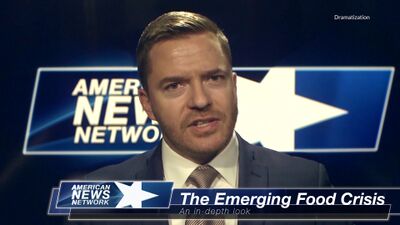Food Chain Reaction
Jump to navigation
Jump to search
planning exercise with 65 thought leaders and policy makers held in November 2015 in Washington D.C.[1][2][3]
Excercise
The simulation focused on the 2020 to 2030 period during a global food crisis. Teams of participants represented governments, institutions, and businesses which had to responded to a global food crisis caused by population growth, rapid urbanization, extreme weather (like floods), and political crises.[4][5][6] Trade, climate, and security were found to be big issues in global food security and the exercise ended with the implementation of a global carbon tax.[7]
Weblinks
References
- ↑ https://www.bloomberg.com/news/articles/2015-11-11/mock-2026-food-crisis-offers-insight-to-unintended-consequences saved at Archive.org
- ↑ https://www.cargill.com/story/video-food-chain-reaction-crisis-simulation-in-washington saved at Archive.org
- ↑ video archived -> https://web.archive.org/web/20180315004156if_/https://www.youtube.com/watch?v=DBj6_TpRbc0
- ↑ https://www.worldwildlife.org/videos/food-chain-reaction-two-minutes-in-the-2020s
- ↑ https://jahnresearchgroup.cals.wisc.edu/research-2/multiple-breadbasket-failure-initiative/food-chain-reaction/
- ↑ https://www.worldwildlife.org/magazine/issues/spring-2016/articles/how-a-new-game-helped-us-understand-the-future-of-food
- ↑ https://www.cargill.com/story/food-chain-reaction-simulation-ends-with-global-carbon-tax

